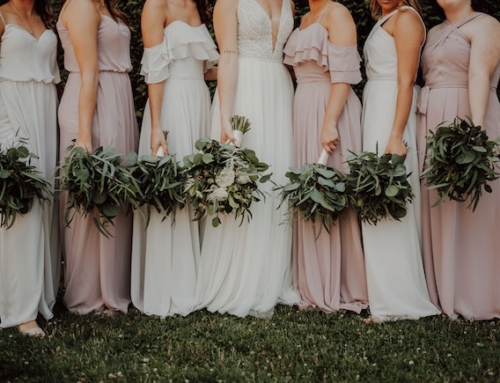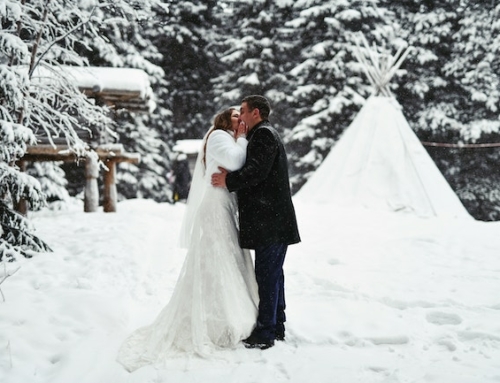
Money, one of the 5 most common pre wedding fights between newly engaged couple. There are nearly 8 out of 10 engaged couple indicated, wedding planning without any budget plan can lead to overspend at the end of the day.
Planning a wedding budget is an essential part of wedding planning, as it helps couples ensure that they don’t overspend and go into debt. Without a budget, it can be easy to get carried away with wedding expenses, leading to financial stress and tension. By having a clear understanding of how much they can afford to spend on each aspect of their wedding, couples can make informed decisions and prioritize what matters most to them. In this article, we will provide a comprehensive guide on how to plan a wedding budget and what factors to consider.
In this article, we will be discussing how to plan your wedding budget and what factors you need to consider to ensure that you stay within your budget while still having a beautiful and memorable wedding day. Planning a wedding can be an expensive affair, and it’s easy to go over budget if you don’t have a solid plan in place. But with careful planning and some savvy budgeting tips, you can have your dream wedding without breaking the bank.
1. Determine Your Total Budget
When planning your wedding budget, the first step is to determine your total budget. This will help you allocate funds for different aspects of the wedding, such as the venue, catering, and decorations. You can start by discussing with your partner and any other parties contributing to the wedding. Consider your financial situation, priorities, and any limitations to determine the amount you are willing to spend on your wedding. Having a clear idea of your total budget will help you make informed decisions and avoid overspending.
The size of your budget depends on various factors, such as your personal savings, monthly income, and contributions from parents. You need to assess your financial situation by counting how much money you have and discussing it with your partner and families. Then, you can determine how much you and your partner can contribute towards the wedding expenses. Setting a realistic wedding budget is crucial to ensure your financial stability and wellbeing.
2. Prioritise Your Spending
Once you have determined your total budget, the next step is to prioritise your spending. This means deciding how much money you want to allocate to each aspect of your wedding, such as the venue, catering, photography, and entertainment.
It is important to prioritize your spending because it will help you allocate your budget in a way that reflects your values and priorities. For example, if having a stunning venue is important to you, you may want to allocate more of your budget to the venue and less to other aspects of the wedding. Alternatively, if having a great photographer is a top priority, you may want to allocate more of your budget to photography and less to other aspects of the wedding.
To help you prioritize your spending, you can make a list of all the elements that you want to include in your wedding and then rank them in order of importance. This will help you make informed decisions about how much money to allocate to each aspect of the wedding.
3. Allocate Your Budget
After determining your total budget and prioritizing your spending, it’s time to allocate your budget to each aspect of your wedding. This involves breaking down your budget into categories such as venue, catering, attire, decorations, and music.
Start by researching the average cost of each category in your area and create a spreadsheet to track your expenses. Allocate a certain percentage of your budget to each category based on your priorities and the estimated costs.
Be sure to leave some wiggle room in your budget for unexpected expenses or emergencies. It’s also important to keep track of your spending throughout the planning process and adjust your budget as needed.
When allocating your budget, consider alternative options that may be more cost-effective. For example, you could opt for a less expensive venue or catering service, or DIY some of your decorations to save money.
Remember to also consider any additional costs such as taxes, gratuities, and vendor fees. These can add up quickly and may not be included in the initial price quote.
4. Consider Hidden Costs
When planning a wedding budget, it’s important to consider hidden costs that may not be immediately apparent. These can include vendor gratuities, taxes, delivery and setup fees, overtime charges, and other miscellaneous expenses.
One way to avoid surprises is to ask vendors for a detailed breakdown of their fees and charges upfront. This will help you understand what is included in their services and any additional costs you may need to budget for.
Another way to account for hidden costs is to set aside a contingency fund in your budget. This can be used to cover unexpected expenses that may arise during the planning process or on the day of the wedding.
It’s also important to consider the cost of any DIY projects or personal touches you may want to add to your wedding. While these can be a great way to save money, they can also add up quickly if you’re not careful. Be sure to budget for any materials or supplies needed, and consider the amount of time and effort required to complete these projects.
5. Revisit and Adjust Your Budget
Once you have determined your initial budget, it’s important to revisit and adjust it as needed. As you start to plan your wedding, you may find that certain expenses are higher or lower than you originally anticipated. It’s important to keep track of your spending and adjust your budget accordingly to avoid overspending or running out of money.
One way to do this is to create a spreadsheet or use a budgeting app to track your expenses. This will help you see where you are spending the most money and identify areas where you can cut back. For example, if you find that you are spending a lot on decorations, you may need to adjust your budget for that category and allocate more money towards other expenses such as catering or photography.
It’s also important to be flexible and open to making changes to your wedding plans in order to stay within your budget. This may mean compromising on certain aspects of your wedding or finding creative ways to save money. For example, you could consider having a smaller wedding, DIY-ing certain decorations or favors, or choosing a less expensive venue.
Remember that your wedding day is about celebrating your love and commitment to each other, and the most important thing is to focus on what truly matters to you both. By regularly revisiting and adjusting your budget, you can ensure that you are staying on track financially and creating a wedding that is both beautiful and affordable.
Read More: Financial Mistakes To Avoid When Planning A Wedding. Getting married? Download Thebigdays wedding planning app to help you get started to organise a perfect wedding day!










